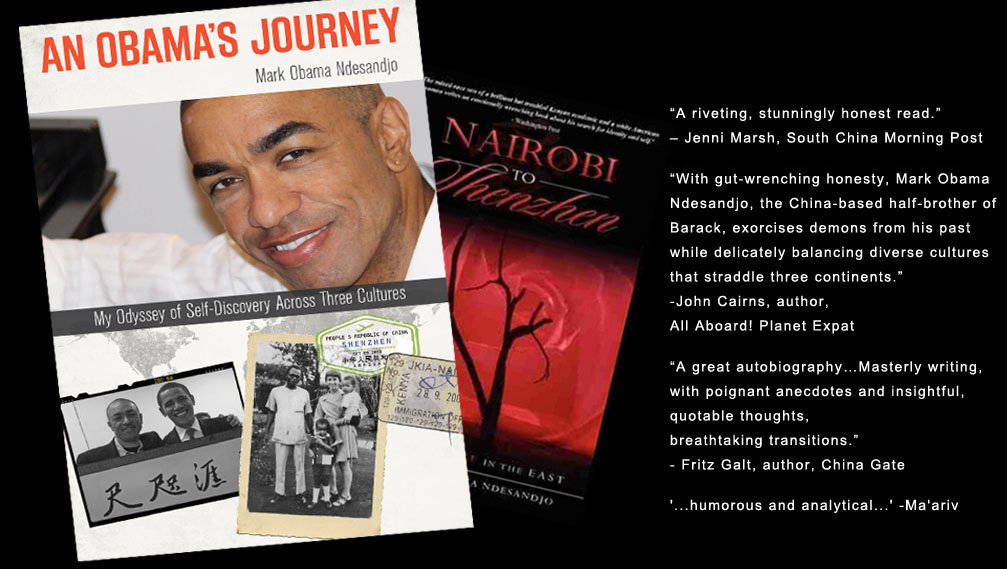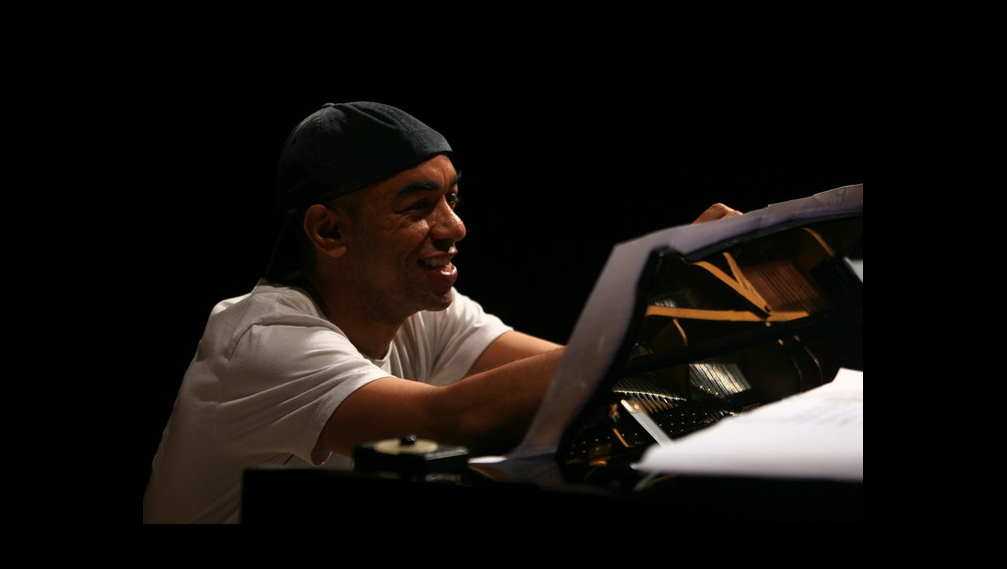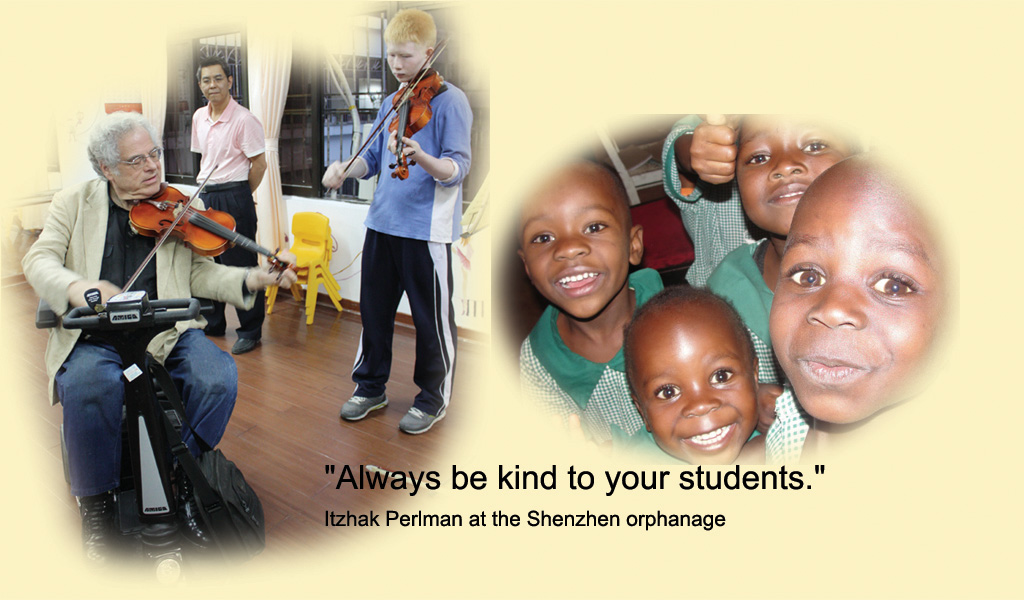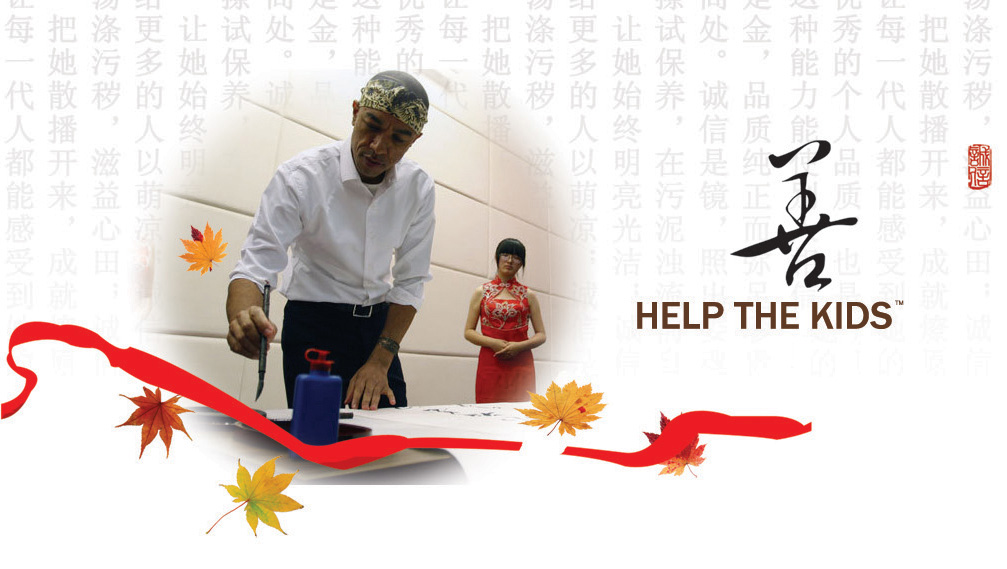|
Keeping the Faith
"There are so many kids in need," a dedicated charity worker said to me a few days ago, "There is only so much we can do. It's so tiring." However, just once in a while, an experience makes a difference.
On a sunny day in Beijing, extremely ill infants reminded me once again of why we should help kids in need, even when there are so many, and when all the odds are against them. Students of the Beijing University of Commerce and Trade had invited me to the Chinese capital to give a talk on multiculturalism and global citizenship. I had accepted the invitation, requesting that they in turn organize a drive to help a charitable organization in Beijing. Although they had just a day or two to prepare, and a week before finals, almost thirty student volunteers pounded the streets of their campus to sell clothes and raise money to help the kids of Angelmom (www.angelmom.org), a Chinese foundation that assists kids with terminal and critical illnesses.
The next day we headed off to see the foundation, meet the kids and give the money they raised. Our car got lost in a maze of streets and alleys miles outside Beijing. "It's a poor neighborhood.' one of my hosts said, pointing to decrepit buildings and row upon row of brick walls in various need of repair. "They cannot afford the high rents in Beijing." Finally, one of the Angelmom volunteers located our stranded car, and we followed his scooter through the stony warren of streets to the children's home. His blue volunteer tunic fluttered in the breeze while the impossibly blue sky above us seemed to mock the muggy heat below.
Angelmom''s director, Mrs Deng, ("Like Deng Xiao Ping!" she said referring to the late leader) welcomed us. Inside a walled compound a low three story building part-rococco, part -something else, loomed over us. Untended shrubs and patches of grass hugged a central play area covered by a large tarpaulin held up by rickety poles.
138 Very Needy Kids
"We have 138 children,' she said." Some are away for operations. and others are ...". Her description was interrupted by a screaming young toddler who rushed up to her and hugged her legs with such force I thought she would fall down. In this small covered area about ten pink shirted volunteers were caring for about as many children, each no older than 3 or 4. Some had chubby faces and laughed with abandon, rushing about with irrepressible energy, forcing the volunteers to run just to keep up with them... 'What a beautiful boy," I said, lifting up a boy holding a toy truck. He had huge red cheeks, and reminded me of those succulent jaozi pastries sold during various festivals. He laughed loudly as I patted him on the head, As I let him down, Mrs Deng whispered, "He has a brain illness. Very serious. All of them are quite sick." I was shocked. He looked so...normal.
"The boy there has autism," and she pointed to a child sitting stationary on a little toy car. He stared ahead, emotionless, while volunteers tried to urge him, without success, to say 'Nihao!" to the visitors. ''That one there has heart disease, and will die in a few years , unless someone treats her." We looked at a frail child being cuddled by a woman as they sat on the entrance steps. I now noticed that many of the children seemed withdrawn, as though their mortality hung like a dark cloak over their heads, muffling their spirits. 'Why hasn't he been operated on?" I asked. 'The doctors will not do it. We had the money, but they said it was too risky..." As if she had said too much, she stopped. All at once, more volleys of little bodies flew at her from all directions. Unfazed, she directed volunteers and staff to pick up this, do that.
"What are your top challenges?" I asked, trying to feel useful.
'We need three things", she answered me," First we need a stable place to stay for a long period of time. We have to move from here, because we cannot afford it. Secondly, some of the children need operations abroad - because we do not have the expertise here in China. Thirdly, we need money.'
We entered the main building. The first floor had a few rooms, each filled with cots and a play area. In one, five children lay in various states of repose on a mat, making the mat look like a multiple-limbed hydra. Everywhere the volunteers were cuddling children, smiling and giving them illimitable spoonfuls of love.
'Do you need mosquito nets?", I asked. " No, we have them, but they make the beds too muggy. ?" The second floor was smaller than the first. More children and cots.
The Third Floor
The third floor was the smallest, but the most poignant
Two babies sat in little chairs on the floor, while two nurses, each holding an infant, hovered silently over them. One of the children in the chair had a terrible skin condition, as though skin was peeling off, leaving ragged, bloody gouges beneath. It was like a combination of acute acne and third degree burn marks. A strong, overpowering odor of decay and human waste filled the room. I held the baby's hand, and it weakly grasped mine. The girl's face was placid, even though she may have been in great pain. Her bright eyes looked out and through me, towards the window, as though I wasn't really there.
"She has a genetic illness which causes these sores. there is no cure..." Mrs Deng voice punctured the stillness.
Next to the child was an impossibly frail little girl, She was no larger than my forearm, A few strands of hair covered her head, and the only life in her seemed to be in her large, black eyes. It's always the eyes of these children that are the most moving. They have that experience of pain, of places seen that no one ever wants to enter, and yet, they seem richer, closer to the divine, perhaps because of it. The philosopher Lao Tze said, "One often sees but does not see, hears but does not understand." These children have much to teach us, for they give us sight, through their own eyes.
"She is recovering from a heart operation. Without it she would have died. " Mrs Deng explained. Yet I barely heard her, It was as though pain and suffering were tangible in this room, like a physical presence that assailed eyes, noses and limbs, a hard thing that would not be denied.
- Mark Obama Ndesandjo, June 2012 |
|
Let's Help the Kids!
The following are Mr Obama Ndesandjo's personal accounts of a few other Help the Kids related events.
Guangzhou Children's Hospital There are a number of children there who have severe life threatening illnesses, particularly related to heart disease. The director informed me that a few thousand dollars can fund one life saving operation, giving the child a full life. When I visited the hospital I was struck by the sight of so many unfortunate children. Parts of the story of Zhen Rui, one of the characters from my novel Nairobi to Shenzhen, draw from what I saw on a visit there.
Please note that there are many happy children who are helped by the dedicated staff of people in China who work at orphanages and hospitals and the above photos could be of children found in any country in the world. Just a little time and help can make a difference in people's lives no matter where you are.
Visit to Sumba Island in Indonesia
In November, my wife and I were recently invited to visit the Sumba Foundation in Indonesia. Decades ago, the founders visited this impoverished island, and fell in love with the people and the island's natural beauty. They set up a high class, eco-friendly resort that encourages visitors to not only have fun, but to also invest in the environment and people. Over the past several years, thanks to this collaboration between foreigners and locals, malaria mortality rates for infants have dropped remarkably and clinics, clean water and education is available to more people every year. For more information visit www.sumbafoundation.org.
If you are interested in hosting or participating in a Help The Kids event please send an email to the webmaster. Due to the volume of emails I get I cannot be sure to get back to you but will try. Thanks! |
|
Helping out in Kenya
In January my wife and I returned to Kenya to see my parents and visit my ancestral home in Kogelo. While we were in Nairobi, my younger brother Joseph introduced me to an organization, www.icraafrica.org, that is doing wonderful work for children in Kenya’s slums. With the help of the Shenzhen Youth League, UPS, AMCHAM and some friends, needed items like teaching supplies, musical instruments, toys and stationary were bought and delivered to these Kenyan Kids. Upon ICRA’s invitation, my wife and I drove to the shanty town school to take a look. These are some photos and recollections from the trip.
“There is a pervasive sense of anxiety in my stomach as we head deeper into the slums. It is the first time in my life I have ever ventured into the ghettos of Nairobi. The roads get worse and eventually disappear, becoming a trail of rubbish, pot-holes and crushed plastic items that kids throw beneath the wheels of struggling vehicles for fun. Approximately 300,000 stragglers and hopeful souls from the villages outside Nairobi, have ended up here, squeezed into a maze of corrugated mabati shacks and shops, each shop front hiding about twenty or so tiny dwellings somewhere in the rear. Our car bumps past vegetables stands selling pumpkins covered with flies, children washing themselves from buckets, and even a black draped door from behind which the sounds of the latest pirated movies blast forth. The parish school is in a relatively spacious flat of red earth, and is a refuge for about sixty children who would otherwise be left behind by parents looking for work, left to the whim of drug dealers, domestic abuse, and sexual assault.
Inside the small one roomed mabati house, which also serves as the parish church, hanging drapes of cheap cotton sheets separate the room into about five sections. Four children look up at me in one section. They are seated at a small rough wooden disk, a schoolbook in front of each of them. I give them a high five, following the teachers’ example.
"How are you? What’s your name?" I say to a small lad sitting quickly, looking at me with big eyes.
"Richard."The boy says shyly. And leans across the table, as though to sleep, his head turned towards me.’
When I sit down at a desk to talk to some teacher, someone hits me in the back. I turn around. A pretty little girl looks at me,
“Look, look!” She cartwheels and dances on the floor without coordination but lots of energy. Whenever I turn my hand, a slap on the back inevitably interrupts me a few seconds later. Eventually a teacher persuades her to return to the other students.
The school is in need of donations to pay for salaries and teaching supplies . I notice the simple curtains that separate each ‘room’ and imagine how stiflingly hot it must be in summer. But the children smile and laugh. I even teach them a little Chinese for :”Hello” (The Swahili equivalent is “Jambo”).
|





